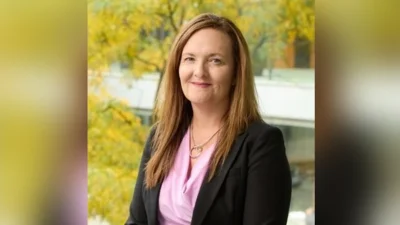Virginia Commonwealth University issued the following announcement on Jan. 18
Research shows that health outcomes improve when patients see physicians of their own race and ethnicity. But according to 2018 data from the Association of American Medical Colleges, or AAMC, 56.2% of active physicians identify as white, with only 5% identifying as Black or African American and 5.8% as Hispanic (13.4% of the U.S. population identifies as Black or African American and 18.5% identify as Hispanic or Latino).
As academic medical centers across the U.S. examine their roles in addressing health disparities, a group of students at Virginia Commonwealth University’s School of Medicine have stepped up to help increase diversity in medicine by removing some of the financial barriers to becoming a doctor.
Rooting for You VCU, founded and led by medical school student Gracia Luoma-Overstreet, formed around the mission of improving access to Medical College Admission Test preparation resources for underrepresented pre-medical students. The group kicked off its first on-campus book drive in December, and plans to make the study materials available to undergraduate VCU students who qualify for the AAMC’s fee assistance program beginning in February.
“There’s a huge cost to preparing for the MCAT, and that creates a major disparity,” said Luoma-Overstreet, who borrowed books rather than buying them new when she was preparing for the test. “We want to bridge that gap.”
The 2022 registration fee for the MCAT is $320, and study materials, such as multibook box sets, practice tests and supplemental workshops, can cost anywhere from hundreds to thousands of dollars. And that is before the fees associated with transmitting college transcripts and applying to medical schools. A 2020 analysis conducted by AAMC reports that only 38.1% of MCAT examinees from lower-income backgrounds completed test preparation courses, compared to 50% of examinees coming from higher-income backgrounds.
Michelle Whitehurst-Cook, M.D., senior associate dean of admissions at VCU School of Medicine, said the students’ initiative is a great idea.
“The cost of applying to medical school is very high," Whitehurst-Cook said. “Developing a way to make MCAT prep materials available for free will certainly lessen this burden.”
Ethan Sewell, a second-year medical student and member of Rooting for You VCU, spent at least $500 on study materials and exam fees, and that was on top of receiving a set of books from his parents for Christmas. While grateful for the support from his family, he recalled feeling disheartened because many of his undergraduate peers struggled to pay for study materials and application fees.
“It was frustrating, seeing a lot of people who were just as qualified as me apply to medical school and realizing they didn’t have all the resources they needed at their disposal,” Sewell said. “It’s a barrier to diversifying medicine, and it’s keeping out a lot of people that we need in order to have similar experiences to more patients.”
Moving to Richmond also opened his eyes to local and national health disparities, and Sewell said he was drawn to VCU School of Medicine because of its welcoming application process and commitment to addressing inequities in the community.
“They made it very clear that they were looking for well-rounded students who want to be active in the community and care about issues that we’ll have the power to address as we go through our careers,” he said. “Doctors are in a very unique position, where they can provide care for patients and advocate for them.”
Luoma-Overstreet, who was born in Nicaragua, has similar inclinations and wants to use her time at VCU to advocate for Hispanic communities. She spent her gap year before medical school working as a language interpreter at a medical clinic in Arlington, Virginia, and was eager to find similar opportunities in Richmond.
“My primary motivator in medical school is working with Hispanic populations and increasing the diversity of Latinx students in medicine,” she said. “These MCAT resources should be available for everyone, and it’s frustrating to see that some students are just able to do the bare minimum.”
The story originally was published by the School of Medicine under the headline “VCU School of Medicine students making MCAT study materials more accessible.”
Original source can be found here.


 Alerts Sign-up
Alerts Sign-up